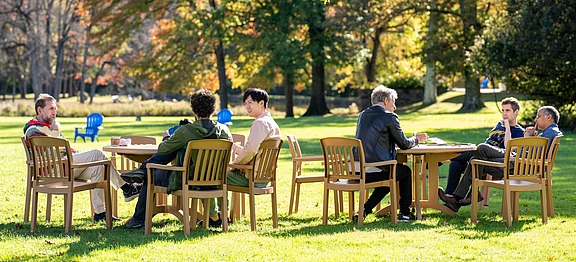Jonathan M. Nelson Center for Collaborative Research
The Jonathan M. Nelson Center for Collaborative Research is dedicated to furthering the Institute's mission of advanced study by providing the funding, space, and technical and administrative expertise necessary for complex collaborations that may extend beyond the resources of a single scholar, discipline, or organization. Supporting research at scale within and across fields and institutions, the Nelson Center seeks to advance foundational knowledge by overcoming constraints that might otherwise restrict the capacity for discovery of the Institute’s scholars.

The Nelson Center is a catalyst for collaborative scholarship at IAS, providing support for scholars to engage across disciplines and pursue shared research projects. The Center advances this mission through:
Internal funding to support Faculty-led initiatives ranging from exploratory projects to large-scale collaborations.
Administrative support for scholars who are not affiliated with one of the Institute’s four Schools or whose work bridges or extends beyond those Schools.
Research development support for collaborative projects, from conception and funding identification to proposal preparation and post-award management.
The Nelson Center for Collaborative Research is made possible by a generous donation from Trustee Jonathan M. Nelson, Founder and Chairman of Providence Equity Partners LLC and Co-Founder and Executive Chairman of Dynasty Equity. The Nelson Center has also received generous support from the Gerard B. Lambert Foundation.
